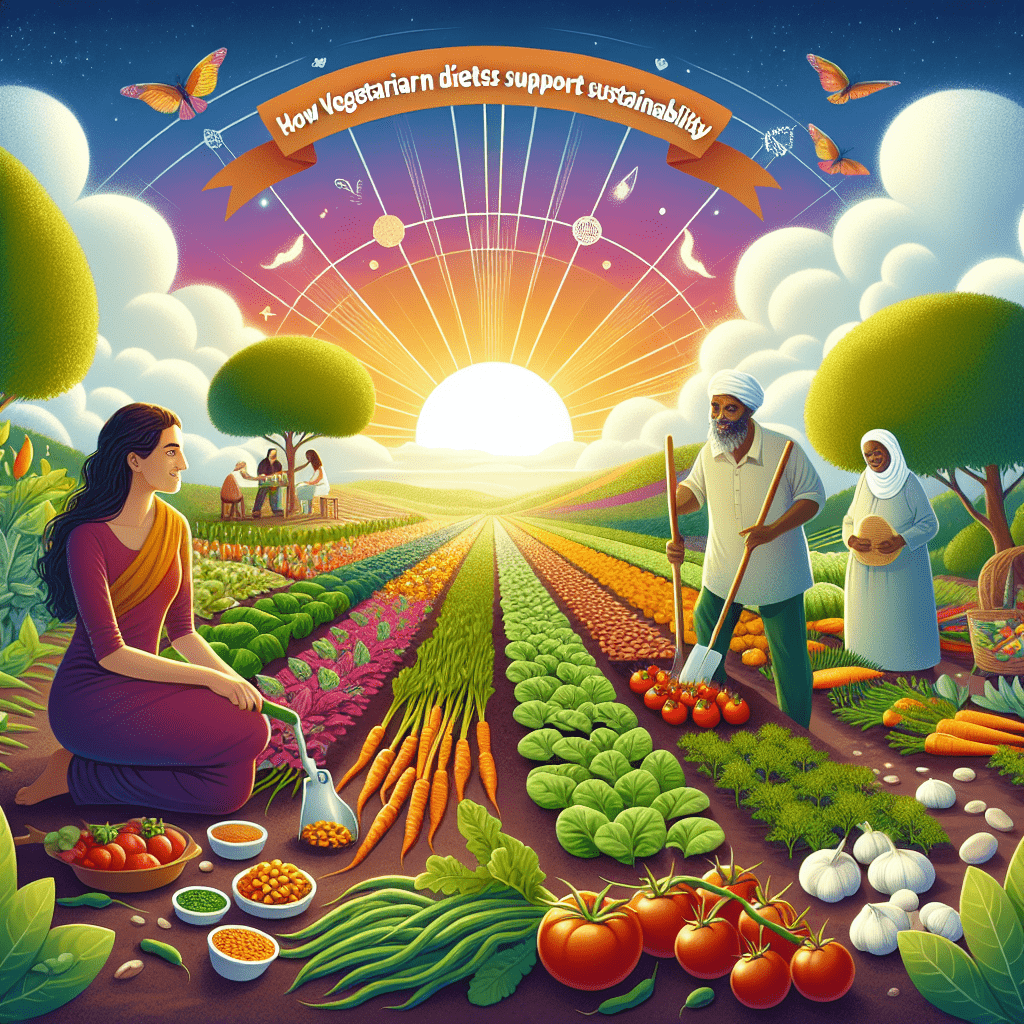[ad_1]
In the current era of environmental awareness, the dietary choices of individuals are increasingly viewed through the lens of sustainability. The transition towards plant-based diets, particularly vegetarianism, has emerged as a potent tool in the battle against an array of ecological challenges. This discussion delves into how vegetarian diets contribute to environmental sustainability, focusing on aspects such as reduced carbon footprint, water conservation, and land use optimization.
Diminishing the Carbon Footprint
The environmental impact of meat production is staggering, with livestock farming responsible for a significant portion of greenhouse gas emissions globally. Adopting a vegetarian diet is seen as a proactive step towards reducing one’s carbon footprint. Vegetables, fruits, and grains require considerably less energy for production compared to animal products, resulting in lower emissions of carbon dioxide and other greenhouse gases.
Conservation of Water Resources
Water scarcity is a growing concern worldwide, and the agricultural sector is a major water user. The production of plant-based foods generally demands less water than animal farming, which involves not only the direct consumption of water by animals but also the irrigation of crops that serve as animal feed. By opting for a vegetarian diet, individuals can contribute to more sustainable water use practices.
Efficient Use of Land
Land use efficiency is another compelling argument in favor of vegetarian diets. Large areas of fertile land are dedicated to growing feed for livestock rather than food for direct human consumption. This practice not only contributes to deforestation but also leads to habitat loss and biodiversity decline. A shift towards a more plant-based diet could result in more efficient use of land, with the potential to enhance food security and biodiversity conservation.
Mitigating the Risk of Environmental Degradation
Apart from reducing the demand for resources, vegetarian diets can also play a role in mitigating environmental degradation. The intensive farming of animals often leads to soil erosion, water pollution, and a decrease in water quality, driven by the disposal of animal waste, antibiotics, and hormones into the ecosystem. Transitioning towards plant-based eating can alleviate these pressures on the environment.
Promoting Biodiversity
Biodiversity is essential for ecosystem health, resilience, and productivity. Vegetarian diets can support biodiversity by reducing the need for monoculture farming, which is typically used to produce feed for livestock. A diverse plant-based diet encourages the cultivation of a wider range of plant species, thus supporting the maintenance of genetic diversity and ecosystem balance.
Key Takeaways
- Environmental Impact: Vegetarian diets significantly reduce the environmental impact of food production, particularly in terms of greenhouse gas emissions, water use, and land use.
- Sustainability: By opting for a plant-based diet, individuals can contribute to more sustainable food systems that are less resource-intensive and more ecologically friendly.
- Health Benefits: Apart from environmental benefits, vegetarian diets are associated with numerous health advantages, including a lower risk of chronic diseases.
- Global Change: Adopting vegetarian diets on a larger scale could lead to substantial positive changes in our global environment, promoting a healthier planet for future generations.
FAQs about Plant-Based Diets and Sustainability
Can changing my diet really make a difference to the environment?
Yes, individual dietary choices can collectively have a profound effect on the environment. By reducing the consumption of animal products, one can significantly lower their carbon footprint, conserve water, and reduce the strain on land resources.
Is a vegetarian diet nutritionally adequate?
A well-planned vegetarian diet can provide all the necessary nutrients for good health. This includes protein, vitamins, and minerals. It’s important to focus on a variety of foods to meet your nutritional needs.
How can I transition to a vegetarian diet in a sustainable way?
Start by gradually reducing your intake of meat and increasing your consumption of vegetables, fruits, whole grains, and legumes. Experimenting with different vegetarian recipes and foods can also help make the transition easier and more enjoyable.
What are the effects of vegetarian diets on global food security?
Shifting to more plant-based diets could improve global food security by increasing the availability of food grains for direct human consumption rather than use as livestock feed, thereby potentially feeding more people with less land.
[ad_2]

Leave a Reply